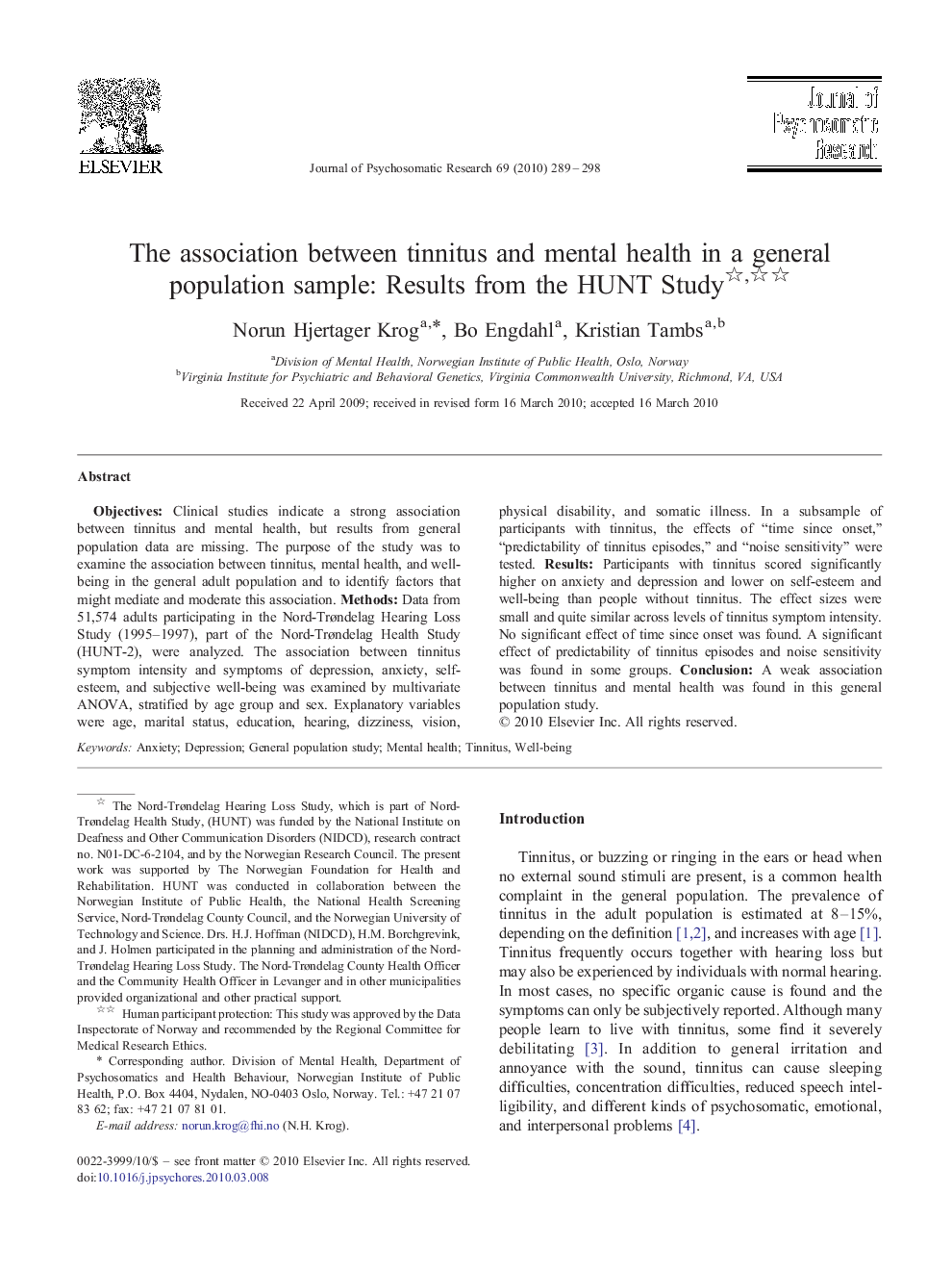| Article ID | Journal | Published Year | Pages | File Type |
|---|---|---|---|---|
| 949882 | Journal of Psychosomatic Research | 2010 | 10 Pages |
ObjectivesClinical studies indicate a strong association between tinnitus and mental health, but results from general population data are missing. The purpose of the study was to examine the association between tinnitus, mental health, and well-being in the general adult population and to identify factors that might mediate and moderate this association.MethodsData from 51,574 adults participating in the Nord-Trøndelag Hearing Loss Study (1995–1997), part of the Nord-Trøndelag Health Study (HUNT-2), were analyzed. The association between tinnitus symptom intensity and symptoms of depression, anxiety, self-esteem, and subjective well-being was examined by multivariate ANOVA, stratified by age group and sex. Explanatory variables were age, marital status, education, hearing, dizziness, vision, physical disability, and somatic illness. In a subsample of participants with tinnitus, the effects of “time since onset,” “predictability of tinnitus episodes,” and “noise sensitivity” were tested.ResultsParticipants with tinnitus scored significantly higher on anxiety and depression and lower on self-esteem and well-being than people without tinnitus. The effect sizes were small and quite similar across levels of tinnitus symptom intensity. No significant effect of time since onset was found. A significant effect of predictability of tinnitus episodes and noise sensitivity was found in some groups.ConclusionA weak association between tinnitus and mental health was found in this general population study.
